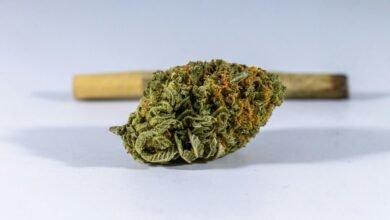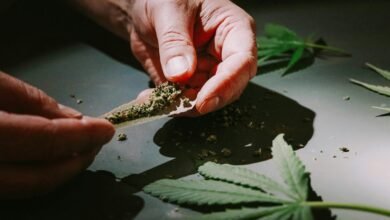How Long Does Cbd Take to Leave System

Understanding how long CBD remains in the system is essential for users. Various factors influence this duration, such as dosage, body composition, and consumption methods. Each individual's metabolism also plays a significant role. These elements are crucial, especially for those concerned about drug testing. Exploring these aspects can provide clarity on personal usage and its implications. What specific factors should users consider in their decision-making process?
Factors Influencing CBD Clearance Time
The clearance time of CBD from the body is influenced by several key factors.
Dosage effects play a significant role, as higher amounts can prolong the presence of CBD in the system.
Additionally, individual body composition, including fat percentage and metabolic rate, affects how quickly CBD is processed and eliminated.
Understanding these factors is essential for those seeking autonomy in their CBD use.
Different Methods of CBD Consumption
Various methods of CBD consumption can significantly impact how long the compound remains in the system.
Edible products, such as gummies and capsules, typically take longer to metabolize, leading to prolonged effects.
Inhalation techniques, like vaping or smoking, allow for quicker absorption, resulting in a shorter duration in the body.
Understanding these methods can help users make informed choices regarding their CBD intake.
The Role of Individual Metabolism
While individual metabolism plays a crucial role in how long CBD remains in the system, factors such as age, weight, and overall health can influence this process.
Metabolism rates vary significantly among individuals, leading to differences in CBD elimination times.
Understanding these individual differences is essential for those seeking to manage their CBD consumption and its effects on their bodies effectively.
Implications for Drug Testing and Usage
How might CBD consumption impact the results of drug testing?
CBD itself typically does not show up on standard drug tests; however, products containing THC can lead to positive results.
Users should adhere to usage guidelines that specify THC levels to minimize risks.
Understanding the potential implications of CBD on drug testing is essential for those concerned about employment or legal matters.
Conclusion
In the garden of wellness, CBD serves as a fleeting flower, its vibrant presence dictated by the soil in which it grows. Factors such as dosage, method of consumption, and individual metabolism shape its lifespan, akin to seasons affecting a bloom's duration. As it withers away, understanding these influences allows users to navigate their paths wisely, especially in the shadow of drug testing. Ultimately, the knowledge of CBD's ephemeral nature empowers individuals to cultivate their well-being with intention.






